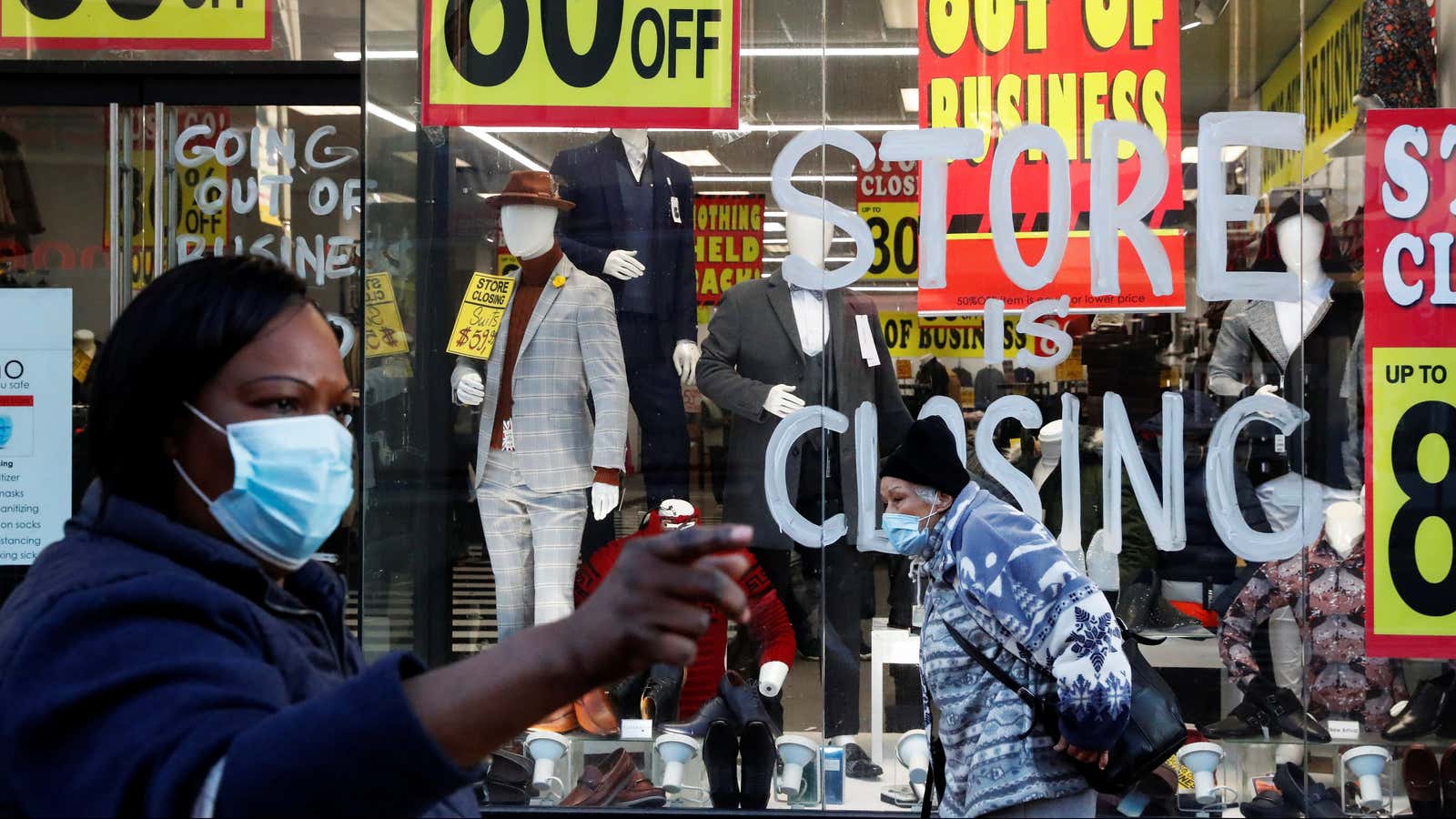The American economy is slowly recovering, but Black and Hispanic women are being left behind.
The latest data show the US unemployment rate stayed steady at 6.7% for the month of December. The number of unemployed persons, at 10.7 million was also unchanged, according to the US Bureau of Labor Statistics (BLS). White men, white women, and Black men all registered job gains for the month in the household pulse survey, which provides demographic information. But 82,000 Black women and 31,000 Hispanic women lost their jobs.
Disproportionate losses
One reason for the slower recovery for these two groups is the higher percentage of Black and Hispanic Americans who work in the leisure and hospitality industries. These have been hit hard by the pandemic and much of the work can’t be done remotely. These positions also often lack paid sick leave. Employment in leisure and hospitality fell by 498,000, with three-quarters of the decrease in bars and restaurants, according to the BLS.
Before the pandemic, the employment rate for American women age 25 to 54 was nearly at 20-year highs, at 74.6%. Due to December’s job losses, Black and Hispanic women ended the year with much higher unemployment rates, of 8.4% and 9.1%, respectively, compared to white women, at 5.7%.
The burden of care
Men have also lost jobs during the pandemic, including 238,000 Hispanic men just in the month of December.
But when schools and day cares closed, many women were forced to make hard trade-offs between work and parenting. In September, 837,000 Hispanic women left the civilian labor force population—which includes employed workers and people looking for a job—a one-month drop of nearly 5.5%.
After months of remote learning, the number of white women in the labor force grew by 263,000 in December, but the number of Black women fell by 153,000, or 1.5%, bringing the latter to an eight-month low.
